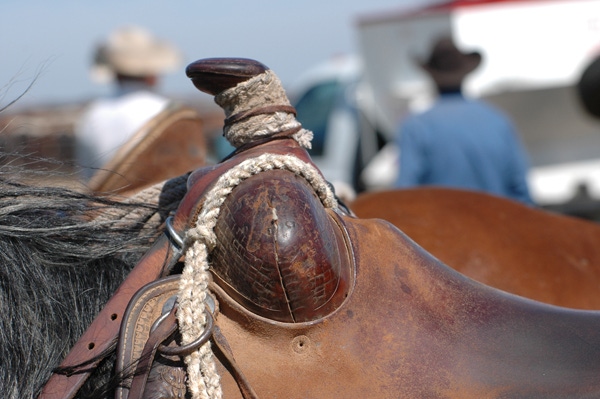In Parts 1 and 2, we looked at the various roles on a ranch and what defines a ranch manager. Let’s finish the discussion with a look at some other issues, including compensation.
August 31, 2017

The ranching landscape is changing as fewer and fewer young people want to take over the family operation, So, as the older generations retire or pass away, the heirs are left with some big decisions—sell the ranch or keep it in the family and hire a someone to run the day-to-day operations.
If they choose to sell, many buyers don’t buy with the intention of living and working on the ranch. They, too, will need to hire someone for day-to-day operations.
In Parts 1 and 2, we looked at the various roles on a ranch and what defines a ranch manager. Let’s finish the discussion with a look at some other issues, including compensation.
For a good ranch manager, money is not a motivator. But that doesn’t mean it isn’t important. It is a hygiene factor. That means it should be paid in proportion to the abilities of the individual worker. Under-paying for experience and ability of a manager usually leads to discontent, resentment or simply losing that individual to a better paying opportunity. So, pay must be sufficient, not merely adequate.
The candidate, too, must be candid about his personal financial situation and needs. If the pay is inadequate to sustain the individual and his family as circumstances require, eventually the arrangement will become unworkable for them.
An owner must know and address the real requirements of getting and keeping the right person. This is always best done in the beginning, utilizing a thorough interview process. That process will require multiple conversations and face-to-face meetings where layers of unfamiliarity are patiently removed to reveal the true story. This goes both ways: no matter how badly a candidate might need a job, the most responsible and conscientious do not want a job that will not work out.
Be honest in your assessment about how any employee will live successfully on the pay and benefits package you offer. Put yourself in their position and consider their happiness and success your own.
A ranch manager brings a unique set of skills and experience to the table. The ability to manage implies a level of skill and experience that is not common. If you have concluded that you, in fact, need and want a manager, be prepared to pay for that in return for the advantages the manager brings. In most cases, this means a base salary of $80,000 to $100,000 per year and a benefit package that prevents the erosion of that salary by other costs to the employee. Meaning, they must be able to remain whole. The ability to save money for later years is the best proof of this.
Use of a spreadsheet to identify and capture all of the financial needs of the individual, under the conditions they will live, is essential in this process. The candidate should quickly appreciate your interest and willingness to do this, both for his benefit and yours.
Once completed, you will have the tool to make the design of the overall compensation package simple and self-evident. It is the owner’s responsibility to lead this process. If a successful compensation package is arrived at, few things will help more to ensure the success of the relationship going forward.
The local vs. newcomer question
Nearly all ranches have the choice of hiring a “local,” someone who knows the area and people. Often, they come with the ranch. Can this be a good thing? Sure. But, “local” is no recommendation. In fact, it often brings as many unwanted issues as it does apparent advantages.
If you consider yourself progressive in your approach, a long-time local might be more intent upon “how things are done around here” than what needs to happen in order to realize your objectives.
A good manager will naturally do one thing: manage. No matter if dealing with local issues or navigating state and federal agencies, his approach will need to be objective, discerning and representative of your interests. This level of maturity does not come automatically with a local candidate. This suggests that a mix of both local and outside candidates is the best approach.
If more needs to be said, the local candidate will be challenged to maintain his loyalty to the ranch owner, while doing the same with longtime friends and neighbors, suppliers, and county government. The outside candidate’s challenge is to enter a new community, becoming a respected member, while advocating for the owner.
No matter the original inspiration, vision, or what has been the case since acquiring your ranch property, the prospect of a new ranch manager can be as much opportunity as it is risk. Having a deliberate approach and method to follow in this search can remove risk and bring new possibilities.
The best color on a horse is whatever color a good horse is wearing. As with love, when the right one comes along, we don’t get to choose the package. So, be open during the appraisal process and expect to be pleasantly surprised by what you find.
Leahy operates DL Resource Management, LLC, based in the High Desert of Oregon. He has managed properties from Texas to Alaska as an independent resource manager. Contact him at [email protected].
You May Also Like



